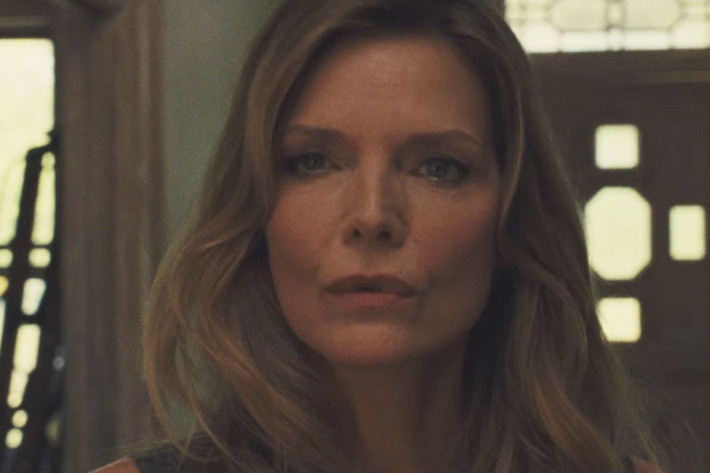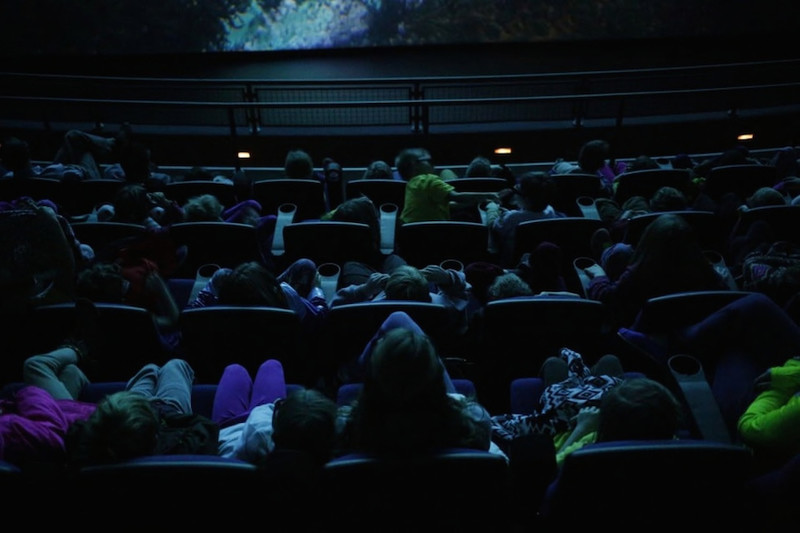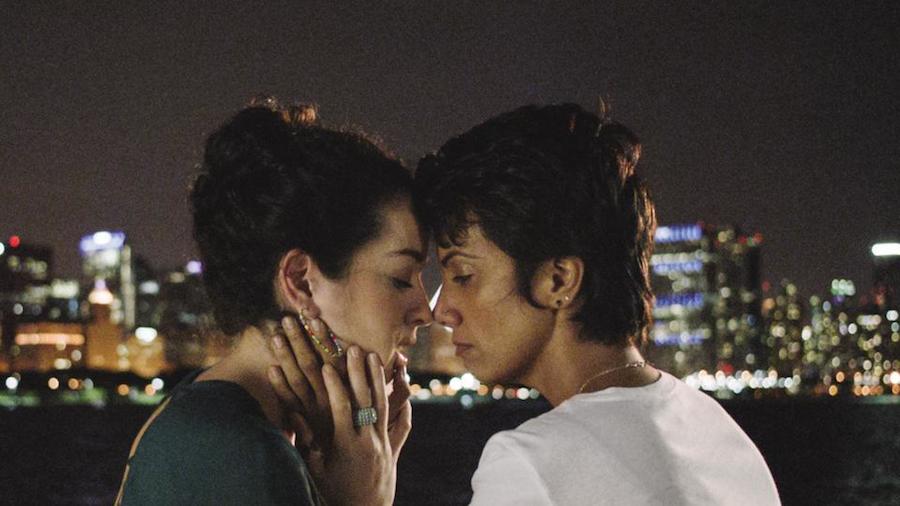Thumbnails is a roundup of brief excerpts to introduce you to articles from other websites that we found interesting and exciting. We provide links to the original sources for you to read in their entirety.—Chaz Ebert
1.
“Jennifer Reeder, Fawzia Mirza and Sari Sanchez on ‘Signature Move’“: At Indie Outlook, I interview the director and stars of a prize-winning indie set to screen tomorrow at Chicago’s Midwest Independent Film Festival.
“‘Alma and her mother are very open with each other,’ said Reeder. ‘They share everything verbally and have a very clear line of communication, whereas Zaynab and Parveen communicate in a different way. They may actually be every bit as open with each other, just not in a verbal sense. They don’t talk about their personal lives. Parveen has not spoken to Zaynab about grieving the death of her husband, or discussed who she was as a younger woman in Pakistan. Zaynab doesn’t tell her mother about who she likes to hang out with at night. And yet, despite the absence of a big coming out monologue, we somehow understand that they are communicating with one another. That’s a very common situation among children of immigrant parents, particularly those who came to the U.S. from more conservative cultures. They often hold onto that culture, and sometimes become even more conservative as a result. It’s important that there’s love and communication between the parent and the child, but it comes out in a very different way than we’re used to seeing, at least onscreen.’”
2.

“The Late Harry Dean Stanton on Life and ‘Lucky,’ His Upcoming Film“: A profoundly poignant article from April Wolfe at L.A. Weekly.
“Harry Dean Stanton, for as much as we knew about him, remains an enigma. When I asked him about life, he simply said, ‘It gets tiresome after a while.’ But as bleak as that might sound, the people closest to Stanton saw the endless hope in him. Or, hell, maybe they just projected it to make themselves feel better. ‘To me, ‘Lucky’ is quite hopeful,’ John Carroll Lynch says. ‘It can’t be kittens with balls of strings and rainbows — you have to choose joy on your journey.’ Happiness, in this film and in Stanton’s life, seems simultaneously simple yet also a painful process of arriving and growing. ‘Lucky’ acknowledges that Stanton would likely not be with us for too much longer, celebrating the life that he was living. Now that it’s being released so soon after his death, the weight of its message seems somehow clearer and more distinct. John Carroll Lynch says ‘You know, you just keep talking. Until you’ve gotten your point across.’ He’s referring to those monologue stories, the ones Stanton has told again and again and one last time in ‘Lucky,’ but really he could be summing up Stanton’s philosophy of life. Harry Dean Stanton talked and talked, until he could talk no more, and then we understood. And Harry Dean returned to the nothingness, or the truth, depending on how you look at it, and he wasn’t happy or sad about any of it. He just was.”
3.

“Jen Richards talks Easy Living, Transgender Opportunities in TV/Film“: An essential interview from critic Danielle Solzman of Solzy at the Movies.
“[Solzman:] ‘Do you think we’ve seen the end of cis men being cast as trans women with ‘Anything’ and ‘Transparent’? Or will this be a trend that unfortunately continues? [Richards:] ‘I think we’ve seen the end of it in American film & television. As far as I know, ‘Anything’ still hasn’t been released. Even if it is, I suspect it will lose a lot of money, just as ‘Stonewall’ did. Hollywood is learning its lesson. I’ll also say, I believe that Matt and Mark sincerely believed they were doing a good thing. They were horrified once they understood the argument I was making. Jeffrey and Jill have both said they wouldn’t have made the choices they did if they knew then what they know now. And I’ve had film festivals tell me that they’ll no longer program movies where cis actors play trans characters. We’re seeing a slow, but irreversible, education of the industry. However, we’ll continue to see the practice continue in international films, anywhere that hasn’t had this conversation yet.’”
4.

“Michelle Pfeiffer is the MVP of ‘mother!’“: At Vulture, our critic Angelica Jade Bastién celebrates the actress’s inspired turn in Darren Aronofsky’s polarizing picture.
“There’s a gravity to Pfeiffer’s performance that allows her to succeed where the other main actors fail, save for brief spurts — she straddles the boundaries between embodying a symbol and granting the character enough interiority to feel like a flesh and blood woman, too. Pfeiffer’s presence darkens the home, and calls to mind a number of figures: When her hand snakes around Bardem’s shoulder, she feels both like a snake invading paradise and a woman reaching out to hold onto someone in the aftermath of loss. When she cocks her head to the side, examining Lawrence for the right point of impact before slyly going for the jugular with a remark about the age difference in her marriage, I thought of Lilith, and the kind of woman who drunkenly delights in highlighting deep fissures in the lives of others while hers is falling apart. She also suggests Hecate, and most pronouncedly, Eve; she’s the primal representation of woman as sin incarnate, woman as usurper, and also the kind of woman it’s easy to imagine catching in a restaurant window, drunk at brunch. Watching Pfeiffer is witnessing a master at work.”
5.

“If Hollywood wants a scapegoat for poor ticket sales, blame movie theaters“: According to Sonny Bunch at The Washington Post.
“At the press screening for ‘It,’ the image was so dark that I could barely make out the action on-screen, especially during scenes that take place either at night or in sewers. (Spoiler: That’s a large portion of the film.) Additionally, the little lights in the theater illuminating the pathways one must follow in the event of an emergency were so bright that they literally threw a shadow of the seat backs in front of them onto the screen. Leaving aside the shade on the screen, which I have to do for my own sanity, the darkness of the image is an easily fixable problem that very few exhibitors seem interested in fixing: projectors with 3-D filters on the lens for non-3-D films. When you leave the 3-D filter on the lens while showing a non-3-D movie, it dramatically decreases the brightness of the picture. This has been a problem for years now — here’s Ty Burr explaining the technical reasons why this is an issue way back in 2011; here’s Vadim Rizov revisiting the problem in 2015; here’s Dennis Cozzalio complaining about a darkened screening of “mother!” just this past weekend — and no one in the industry seems to care.”
Image of the Day

Screenwriter Ron Hutchinson explains to The Guardian‘s Dayla Alberge how Marlon Brando sabotaged his film, “The Island of Dr. Moreau.”
Video of the Day
#BLADE2049 (Mashup trailer of the BLADE trilogy and BLADE RUNNER 2049) from Nelson Carvajal on Vimeo.
Master editor Nelson Carvajal presents his mash-up trailer of “Blade” and “Blade Runner 2049.”












